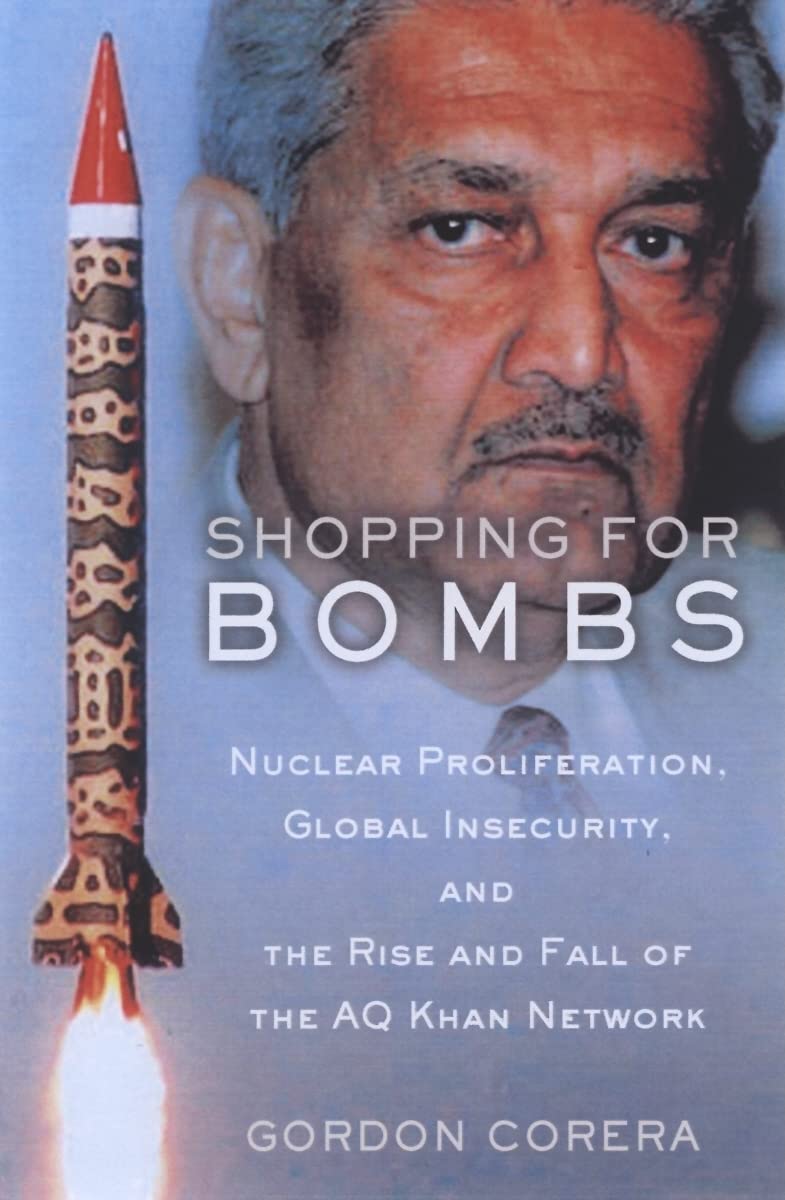
Shopping for Bombs: Nuclear Proliferation, Global Insecurity, and the Rise and Fall of the A.Q. Khan Network
FREE Shipping
Shopping for Bombs: Nuclear Proliferation, Global Insecurity, and the Rise and Fall of the A.Q. Khan Network
- Brand: Unbranded

Description
The general consensus among experts is that if Putin were to reach for his nuclear weapons in the course of his war in Ukraine, he wouldn’t select the kind of long-range, city-destroying, “strategic” nuclear weapons that were so prominent during the Cold War. Instead, he’d likely opt for one or several of the country’s roughly 2,000 tactical nuclear weapons—less explosive, shorter-range arms intended for use on a battlefield.
Saudi Arabia is also the largest producer of desalinated water in the world. Ninety percent of its drinking water is desalinated, a process that burns approximately 15 percent of the 9.8 million barrels of oil it produces daily. Nuclear power could meet some of this demand. The experts I consulted also agreed that Putin himself would probably want to telegraph to the world in subtle or blatant ways that he’s making these moves—in part because he could never be fully confident of taking these steps without his adversaries detecting them, but also because, as Lewis put it, he would want “to see if he could get what he wants for free.” With the world’s second-largest known petroleum reserves, abundant untapped supplies of natural gas and high potential for solar energy, why is Saudi Arabia shopping for nuclear power? Some of its motives are benign, but others are worrisome. We will know it when we see that,” Podvig said of a possible rhetorical shift. “My take is that, so far, we haven’t seen it.” I f Vladimir Putin were to decide to use nuclear weapons in Ukraine, would we know ahead of launch? If so, how exactly would we know?
A competitive global market
This is one of the core conundrums in this confounding war: The United States and its partners are rightly supporting Ukraine’s campaign to regain all the territory it has lost to Russia’s illegal and abhorrent aggression. But investing in Ukraine’s unequivocal success, and thus Putin’s utter defeat, may come with the greater risk of a desperate Putin unleashing nuclear war. In such circumstances, “I think President Biden and other officials would”—publicly and privately—“signal very aggressively to the Russians to dissuade them from escalating the conflict with nuclear weapons,” Jeffrey Lewis, a nuclear-nonproliferation expert at the Middlebury Institute of International Studies at Monterey, told me. Adel Al-Jubeir, Saudi Arabia’s ambassador to the U.S., discusses his government’s concern about Iran’s nuclear program. US nuclear trade regulations
The promoters of the plan also reportedly proposed to sidestep U.S. sanctions against Russia by partnering with Russian companies – which impose less stringent restrictions on nuclear exports – to sell reactors to Saudi Arabia.According to a congressional report, a group that includes former senior U.S. government officials is lobbying to sell nuclear power plants to Saudi Arabia. As an expert focusing on the Middle East and the spread of nuclear weapons, I believe these efforts raise important legal, economic and strategic concerns. First, nuclear energy would allow the Saudis to increase their fossil fuel exports. About one-third of the kingdom’s daily oil production is consumed domestically at subsidized prices; substituting nuclear energy domestically would free up this petroleum for export at market prices. Of the 56 new reactors under construction worldwide, 39 are in Asia. IAEA, CC BY-ND Why does Saudi Arabia want nuclear power?
Flynn resigned soon afterward and now is cooperating with the investigation into Russian interference in the 2016 campaign. But IP3 access to the White House persists: According to press reports, President Trump met with representatives of U.S. industry, a meeting organized by IP3 to discuss nuclear exports to Saudi Arabia as recently as mid-February 2019. Rules for a Saudi nuclear deal American nuclear suppliers claim that these strict conditions and time-consuming legal requirements put them at a competitive disadvantage. But those conditions exist to prevent countries from misusing U.S. technology for nuclear weapons. I find it alarming that according to the House report, White House officials may have attempted to bypass or sidestep these conditions – potentially enriching themselves in the process. It is understandable that the Trump administration might want to support the U.S. nuclear industry, which is shrinking at home. However, the congressional report raised concerns that the group seeking to make the sale may have have sought to carry it out without going through the process required under U.S. law. Doing so could give Saudi Arabia U.S. nuclear technology without appropriate guarantees that it would not be used for nuclear weapons in the future. A competitive global marketSaudi leaders have also expressed clear interest in establishing parity with Iran’s nuclear program. In a March 2018 interview, Saudi Crown Prince Mohammed bin Salman warned, “Without a doubt, if Iran developed a nuclear bomb, we will follow suit as soon as possible.”
- Fruugo ID: 258392218-563234582
- EAN: 764486781913
-
Sold by: Fruugo
